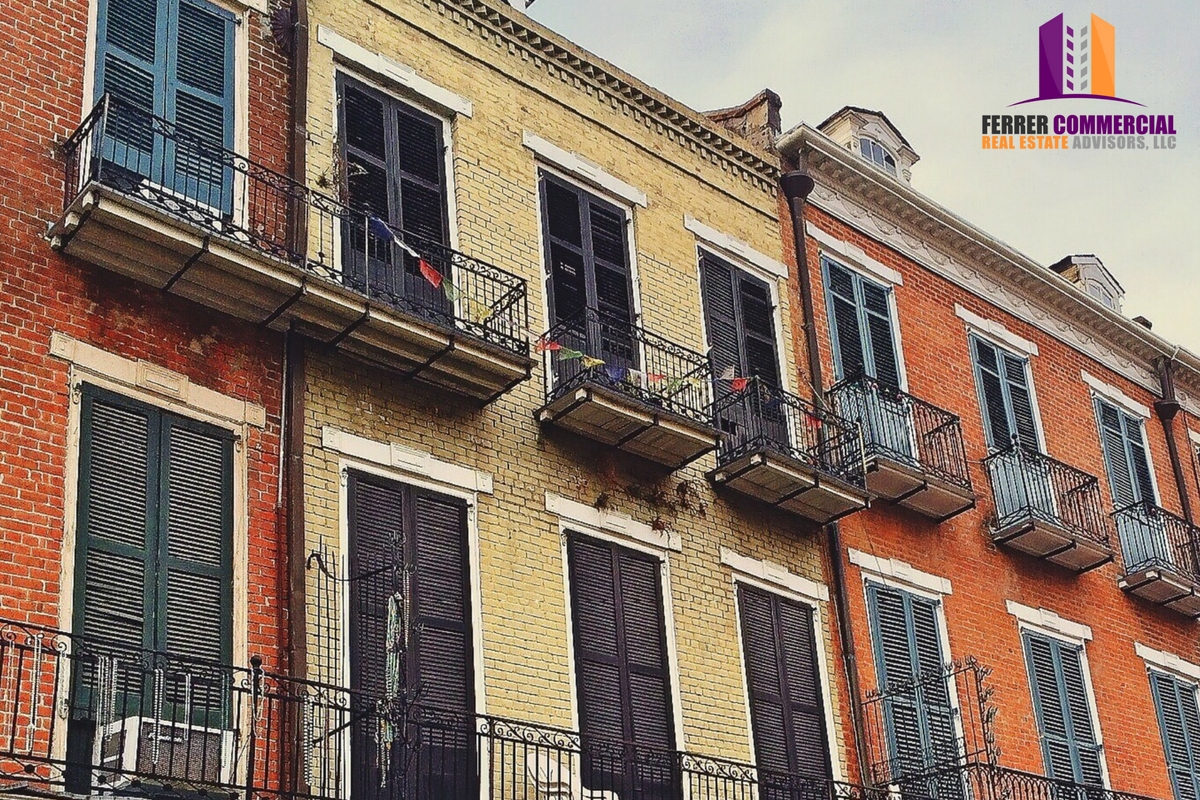The Pros and Cons of Leasing a Historic Commercial Property
Charleston, SC is full of historic commercial property which has remained intake over hundreds of years, but as some CEO’s have recently learned, owning or leasing a historic commercial property isn’t always the best business decision. It’s imperative for companies to do their homework when considering leasing a historic commercial property. Things such as consistent upkeep and a healthy business budget can become major factors in whether or not your doors may remain open.
Pros of Leasing a Historic Commercial Property
Leasing historic commercial property in the Holy City can have its perks:
Active Locations
The majority of historic commercial property is located on the peninsula of downtown Charleston. A steady supply of local and tourist foot traffic makes for very busy businesses scattered amongst the city. As Charleston grows, neighborhoods will continue to be revitalized, ensuring more historic properties to lease will be up for grabs.
Uniqueness
Walk into any historic building in the Holy City and its beauty and old world feel will leave a lasting impression. From glittering chandeliers to winding stair cases to gleaming hardwood, historic Charleston buildings add character, southern charm, and a sense of prestige to area businesses.
Vastness
Historic properties in Charleston were constructed to accommodate the dress and social customs of the times. The aim was to recreate the luxurious, cosmopolitan life of Restoration England, so all newly constructed buildings had to have plenty of room for things like dancing, hoop skirts, socializing, musical performances, and masquerades.
Well Built
Historic properties all over the world have stood for hundreds, even thousands, of years because they were originally built using heavy duty materials such as stone crafted by stone masons, sturdy wood like oak, poplar and fir, cast iron, and solid architectural designs meant to stand the test of time.
Cons of Leasing a Historic Commercial Property
Leasing historic commercial property in the Holy City also has its downfalls and is all centered around consistent upkeep:
Aging Architecture
Though the architecture of a historic commercial property may be beautiful, it has one major flaw: it’s old! Floors splinter, ceilings leak, support beams buckle, brick deteriorates and electrical and plumbing issues will arise. Once these issues start to incur, a business’s or property manager’s budget will significantly deplete.
Long Demo Times & Expensive Repairs
Once the aging architecture rears its ugly head, it usually opens the floodgates to a motherload of problems which cost a ton of money and can take months, sometimes even years, to fix. As mentioned above, the materials used to originally build these historic buildings are heavy duty which means they usually have a much higher price tag and aren’t as readily available as the cheaper materials used in construction today.
Hidden Surprises & Problems
As the recent closing of Lagunita’s Taproom on East Bay Street, the ordered closing of Read Brother’s and the city’s shut down of Jim & Nick’s on King, unforeseen damage, dangerous structural issues, and the question of public safety can wreak havoc on a business and cause them to be open and successful one minute to closed indefinitely &/or condemned the next.
Continuous Upkeep
Upkeep of historic commercial buildings is absolutely imperative. Support beams must remain secure, ceilings must remain intake, sidewalks must stay sound, and masonry must be monitored. If consistent inspections, accurate reporting, and solid repairs aren’t maintained, it’s inevitable one, if not all, of the cons mentioned above will occur at some point causing a business to close its door without warning.
Have further questions about historic commercial leases in Charleston? We want to hear from you! Feel free to contact me with any questions you may have!
Find Rock Creek Real Estate Advisors, LLC. on Facebook, Twitter, YouTube, & LinkedIn.

